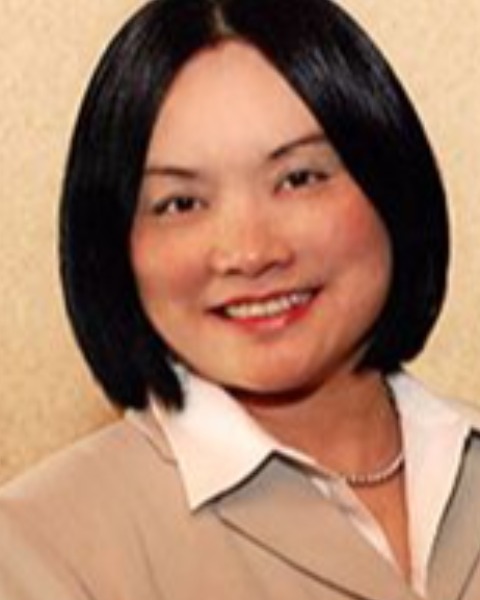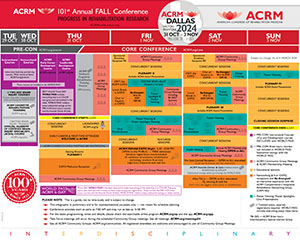International
Measurement
Global Certification on Rehabilitation: A Standard for Recognizing Health Workforce Excellence
Saturday, November 2, 2024
3:15 PM - 3:30 PM
Location: Station 16: ROOM: POSTERLAND / Trinity Poster / Exhibit Hall REGION: Tower Lobby Level >>>

Julia Y. To Dutka, EdD (she/her/hers)
Chief, Global Health Workforce Development Institute
CGFNS International
Philadelphia, Pennsylvania, United States
Presenting Author(s)
Research Objectives: The author, with 200 subject matter experts from 46 countries, have been working since 2019 to create three global rehabilitation certifications for nurses and health workers. Objectives are:
1. To build consensus around essential competencies for rehabilitation care through an iterative process.
2. To validate health workforce knowledge and skills through global certification.
3. To raise the standard of rehabilitation care for populations across world regions and income levels.
Design: Two parallel studies, one on rehabilitation nursing, and one on rehabilitation health workers and rehabilitation health workers advanced: A nursing and a multidisciplinary rehabilitation taskforce were convened separately in 2019 to set a standard for rehabilitation care by identifying competencies essential to the safe delivery of care.
2. These competency frameworks were sent out to subject matter experts for global field review and to achieve consensus using an iterative approach.
3. A test blueprint for each health workforce was created.
4. Subject matter experts were recruited to write the items.
5. Items were reviewed and revised to meet technical requirements.
6. Items were sent out for global field review by subject matter experts to ensure that they are fair and bias-free for populations across the world.
7. Forms were for beta-testing and global launch.
Setting: All phases of work were performed virtually using Zoom. Subject matter experts from all practice settings across all time zones and world regions participated voluntarily.
Participants: Subject matter experts have come from hospital systems, long-term care, private and institutional practice, primary care and specialty care, ambulatory and hospitalized care, urban centers and rural communities, and academic institutions. They were all volunteers.
Interventions: NA
Main Outcome Measures: Three exam-based global certifications for rehabilitation professionals (nurses, technical personnel, and clinicians) have been created, observing rigorous psychometric protocols and subject matter experts' content input, review, and judgment.
Results: These global rehabilitaiton certifications fill a critical void in achieving a standard to recognize excellence in rehabilitation care. While there are many provisions for training and courses for continuing professional development, the absence of a global standard for safe patient care is one of the greatest deterrents for improvement in practice settings worldwide.
Conclusions: The voices from the field captured in the volunteerism undergirding the development of these three global rehabilitation certifications speak to the urgency of these measurement yardsticks. Additional studies are needed to document the efficacy of these tools in raising the standards of care, improving care delivery, and achieving positive health outcomes .
Author(s) Disclosures: No conflict.
1. To build consensus around essential competencies for rehabilitation care through an iterative process.
2. To validate health workforce knowledge and skills through global certification.
3. To raise the standard of rehabilitation care for populations across world regions and income levels.
Design: Two parallel studies, one on rehabilitation nursing, and one on rehabilitation health workers and rehabilitation health workers advanced: A nursing and a multidisciplinary rehabilitation taskforce were convened separately in 2019 to set a standard for rehabilitation care by identifying competencies essential to the safe delivery of care.
2. These competency frameworks were sent out to subject matter experts for global field review and to achieve consensus using an iterative approach.
3. A test blueprint for each health workforce was created.
4. Subject matter experts were recruited to write the items.
5. Items were reviewed and revised to meet technical requirements.
6. Items were sent out for global field review by subject matter experts to ensure that they are fair and bias-free for populations across the world.
7. Forms were for beta-testing and global launch.
Setting: All phases of work were performed virtually using Zoom. Subject matter experts from all practice settings across all time zones and world regions participated voluntarily.
Participants: Subject matter experts have come from hospital systems, long-term care, private and institutional practice, primary care and specialty care, ambulatory and hospitalized care, urban centers and rural communities, and academic institutions. They were all volunteers.
Interventions: NA
Main Outcome Measures: Three exam-based global certifications for rehabilitation professionals (nurses, technical personnel, and clinicians) have been created, observing rigorous psychometric protocols and subject matter experts' content input, review, and judgment.
Results: These global rehabilitaiton certifications fill a critical void in achieving a standard to recognize excellence in rehabilitation care. While there are many provisions for training and courses for continuing professional development, the absence of a global standard for safe patient care is one of the greatest deterrents for improvement in practice settings worldwide.
Conclusions: The voices from the field captured in the volunteerism undergirding the development of these three global rehabilitation certifications speak to the urgency of these measurement yardsticks. Additional studies are needed to document the efficacy of these tools in raising the standards of care, improving care delivery, and achieving positive health outcomes .
Author(s) Disclosures: No conflict.
Learning Objectives:
- Upon completion, participants will be able to define the three global rehabilitation certifications; one for nurses, one for rehabilitation health workers, and one for rehabilitation health workers advanced; for the global rehabilitation health workforce.
- Upon completion, participants will be able to describe how these global rehabilitation certifications were created with the contribution of more than 200 subject matter experts.from 45 + countries.
- Upon completion, participants will be able to articulate how these global rehabilitation certifications can help validate rehabilitation competence and recognize rehabilitation nurses and health workers' excellence in their practice-settings.

.jpg)
.jpg)
.jpg)
